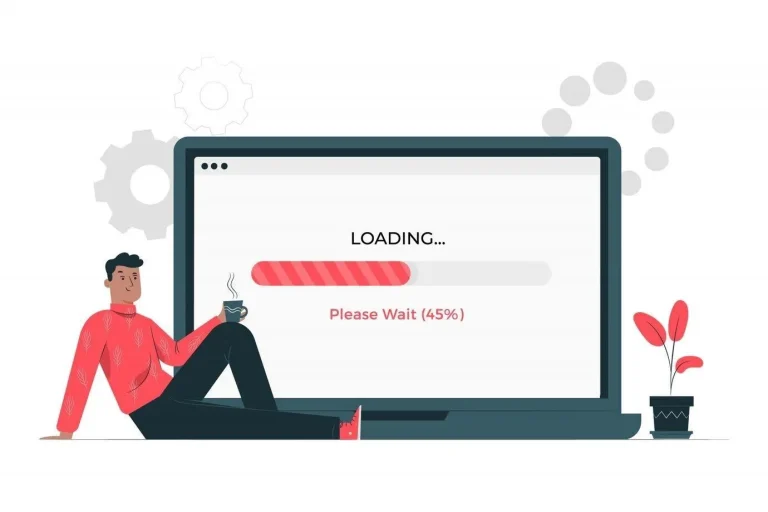Ad operations, at first sight, may look like a repetitive and tedious job. But it is one of the most challenging jobs in the digital advertising industry. You must learn daily, experiment, and troubleshoot critical issues at the 11th hour. While it is true that programmatic automates a lot of operations in media trading, you still need to set up the server, handle demand partners, update your setup as per the industry guidelines/privacy laws, implement consent mechanisms, and the list goes on.
If you feel overwhelmed, you’re not alone, and that’s why ad operation (ad ops, in short) has become an essential part of adtech. Let’s learn what ad operations are, their responsibilities, and when is the time for you to have a dedicated in-house or outsourced ad ops team.
Before diving into ad operations, you need to know that both sides of the ecosystem, the sell-side (publishers) and buy-side (advertisers), rely on ad ops professionals. Here, we’ll be focusing more on the sell side.
Table of Contents
What Is Ad Operations?
Digital advertising operations is an umbrella term that includes any processes that help you to set up, manage, run, and optimize ad campaigns. Typically, ad ops teams manage and deliver digital ads with various platforms, including, but not limited to, ad servers, ad exchanges, networks, SSPs, and DMPs. From setting up floodlights to writing triggers for Google Tag Manager, ad operation teams work closely with publishers (or advertisers – depending on which side you are working on) to monitor campaigns.
The primary job is to generate the best possible ad revenue without hampering the user experience. It might be via setting up direct deals, private marketplaces, and/or connecting to multiple ad exchanges via header bidding wrapper.
What Are the Main Objectives of Ad Operations?
Technically, it doesn’t matter whether the publisher is selling ad inventories via direct selling or programmatic selling; an online advertising operations team has a bunch of things to do, and we’ve listed down a few below:
Handling Ad Servers: As ad servers are responsible for serving ads on the website, digital ad ops professionals need to set up, manage, and continually update the ad server setup to monetize ad impressions effectively.
It is complicated, especially if a publisher wants to run PMPs and header bidding in parallel. Also, if it is a mid-sized publisher, the ops team does ad trafficking, creates floodlights (if needed), and takes care of the programmatic setup on various platforms.
Troubleshooting Issues: Working with multiple partners can induce complexities, which, in turn, can increase the probability of technical setbacks.
It might be ads breaking your web page, slowing down your web pages, forced ad redirects, viewability drop, etc. An adops team keeps checking the KPIs and troubleshoots/fixes if any issues are identified.
Maintaining Reports: Pulling and reading various reports from a first-party ad server and third-party ad server; the team does demand partners.
Such reports usually consist of advertising discrepancies, impression-level metrics, and attribution metrics (i.e., CTR, sales, etc.). Publishers with a unified revenue analytics dashboard can let the machines do the work.
Campaign Optimization: An optimized campaign is essential for a publisher because it is the one that is going to yield better revenue. Ad ops engineers keep track of ad viewability, served impressions, bidder partner performance, and the overall user experience to optimize for revenue.
And the list doesn’t end here. Apart from these major goals, the advertising operations team is also responsible for
- DMP integration,
- Running audience extension campaigns,
- Continually analyzing demand partners and setup to get a better yield,
- Testing new tags/techniques,
- Pulling inventories for RFPs.
Therefore, it’s not wrong to say that “adops is the engine that drives a publishing company”. With a myriad of tasks to be done, it becomes harder for digital ad operations professionals to take care of everything solely. Hence, to make things easy, they take the help of a variety of digital ad ops tools, some of which are free to use.
What Are the Best Adops Tools?
- Charles
- Headerbid Expert
- Google Publisher Console
- Google Publisher Toolbar
- ClickTag
- Fiddler
- Firebug
- Firecookie
Here are some of the best free ad ops tools:
Charles: A web debugging tool that helps to detect where the traffic is sent and from where it is received. Read more about it in our detailed guide here.
Headerbid Expert: A free Chrome extension developed by Prebid to provide bid latency info of the header bidding partners competing for your impressions. There are many other header bidding extensions available that you can use for your day-to-day adops life. Check it out here.
Google Publisher Console: A troubleshooting tool to see what’s happening on a webpage and how the ads are rendered. It will list the specifics of the ad slots (on the page) and the page request timeline. Learn more about Publisher Console in this blog post.
ClickTag: ClickTag tools are used as a tracking tool for flash banner advertising which allows counting click-throughs.
Fiddler: Just like Charles, Fiddler is a web debugging tool. The difference between the two exists only in terms of cost and installation.
Firebug: Firebug is an open-source browser extension that can be added to Mozilla and helps to debug, edit or monitor the website’s JS, CSS, HTML, etc. It helps the ad ops team to figure out errors related to ad serving immediately.
Firecookie: Firecookie, a part of Firebug, allows the export of cookies for a website and collects various information such as cookie expiration time, sent and received cookies, etc.
If you want to explore more ad operation tools, we have an ultimate guide.
So, When Do You Need an Ad Operations Team?
If you have tens of millions of unique users per month and would like to work with multiple demand partners, you need to implement header bidding (could be client-side or server-side, or both). And it’s better to have an adops team to complete the job.
The ad ops professionals will handle everything on your behalf, i.e., revenue management, creative updates, delivery optimization, unsold inventory management, audience retargeting, etc. You can build your in-house team or outsource it to experienced programmatic partners. It depends on what you like to implement, current knowledge, technical complexities, and business goals.
Typically, publishers who want to focus on growing their audience and creating great content let us take care of the monetization. Occasionally, some publishers use an in-house team to run programmatic guaranteed campaigns and an external party to sell remnant inventories on open ad exchanges. It’s ultimately up to you.
When Do You Need to Outsource Adops?
When you’re just starting and moving up to bigger levels, then there is a chance that you might be confused about having an in-house or outsourced ad ops team. If you’re experiencing any of these signs, it’s time to consider outsourcing your ad operations:
- You’re below the industry standard in terms of ad revenue.
- Finding the perfect candidate will take time. But you don’t have enough time.
- You might not think of yourself as an adops expert.
- When the complexity of the ad tech industry becomes too great for you to understand.
- When your website needs to run every day, around the clock.
Read more about these points and how to choose the right adops partner in detail here.
Wrapping Up
With adtech becoming increasingly interconnected and automated, who will oversee this growing environment? You might be wondering. Who is going to make sure that everything works as it should? Ad operations teams have become this go-to source that monitors and manages online advertising, but they can only do so much independently.
Publishers are taking notice of this growing role, but they need to realize that it’s ultimately in their best interest to ensure this team has what it needs to excel. It’s time for publishers to take a step back and look at their ad operations teams through fresh eyes. And there’s no doubt that ad operations will grow more and more in importance as new forms of advertising are introduced in the coming years.























